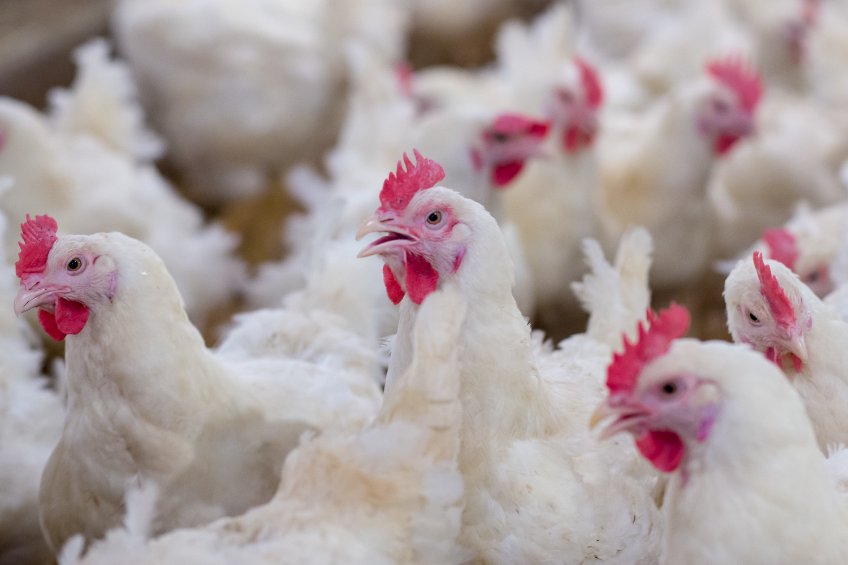
More than 1,600 poultry farmers across the UK have received legal warning letters from the Humane League UK, cautioning that the practice of raising fast-growing chickens may be unlawful and could carry 'serious legal consequences'.
The animal welfare charity has also announced plans to send similar legal warnings to the UK’s four largest poultry producers — Avara, Cranswick, Moy Park, and 2 Sisters.
The letters follow a recent judicial review which found that it is illegal to farm animals in a way that causes them suffering due to their genetic make-up, regardless of economic considerations.
Fast-growing broiler breeds now account for over 90% of chickens raised for meat in the UK, with the birds selectively bred to grow from chick to slaughter weight in just 35 days.
While this maximises productivity, campaigners say there are serious welfare concerns, including lameness, organ failure, and skin lesions from prolonged contact with waste.
Sean Gifford, managing director at the Humane League UK said: “Chicken farming in the UK is fundamentally broken. That’s why we are putting one and a half thousand UK chicken producers on notice.
"The Court of Appeal was crystal clear — raising animals whose genes condemn them to lives of suffering is unlawful.
"'Frankenchickens', who struggle with lameness, organ failure and blisters from lying in their own waste, are forced to endure this suffering as a result of their very DNA.
"We believe this makes farming them illegal. These letters are a crucial step towards building a better future for people and animals.”
Humane League UK's legal argument centres on paragraph 29 of Schedule 1 to the Welfare of Farmed Animals (England) Regulations 2007.
This states: “Animals may only be kept for farming purposes if it can reasonably be expected, on the basis of their genotype or phenotype, that they can be kept without any detrimental effect on their health or welfare.”
Campaigners at the charity are urging food businesses to adopt the Better Chicken Commitment (BCC), an initiative promoting the use of slower-growing, higher-welfare chicken breeds.
More than 380 UK and EU companies — including Marks & Spencer, Waitrose, Greggs, and Pieminister — have signed up.
However, several major retailers such as Co-op and Lidl, as well as fast-food chain KFC, have yet to fully implement the commitment.
